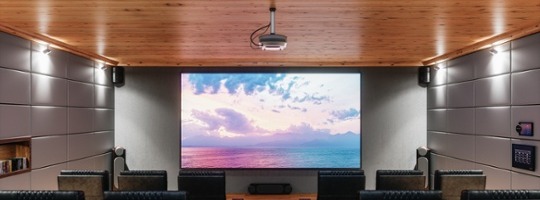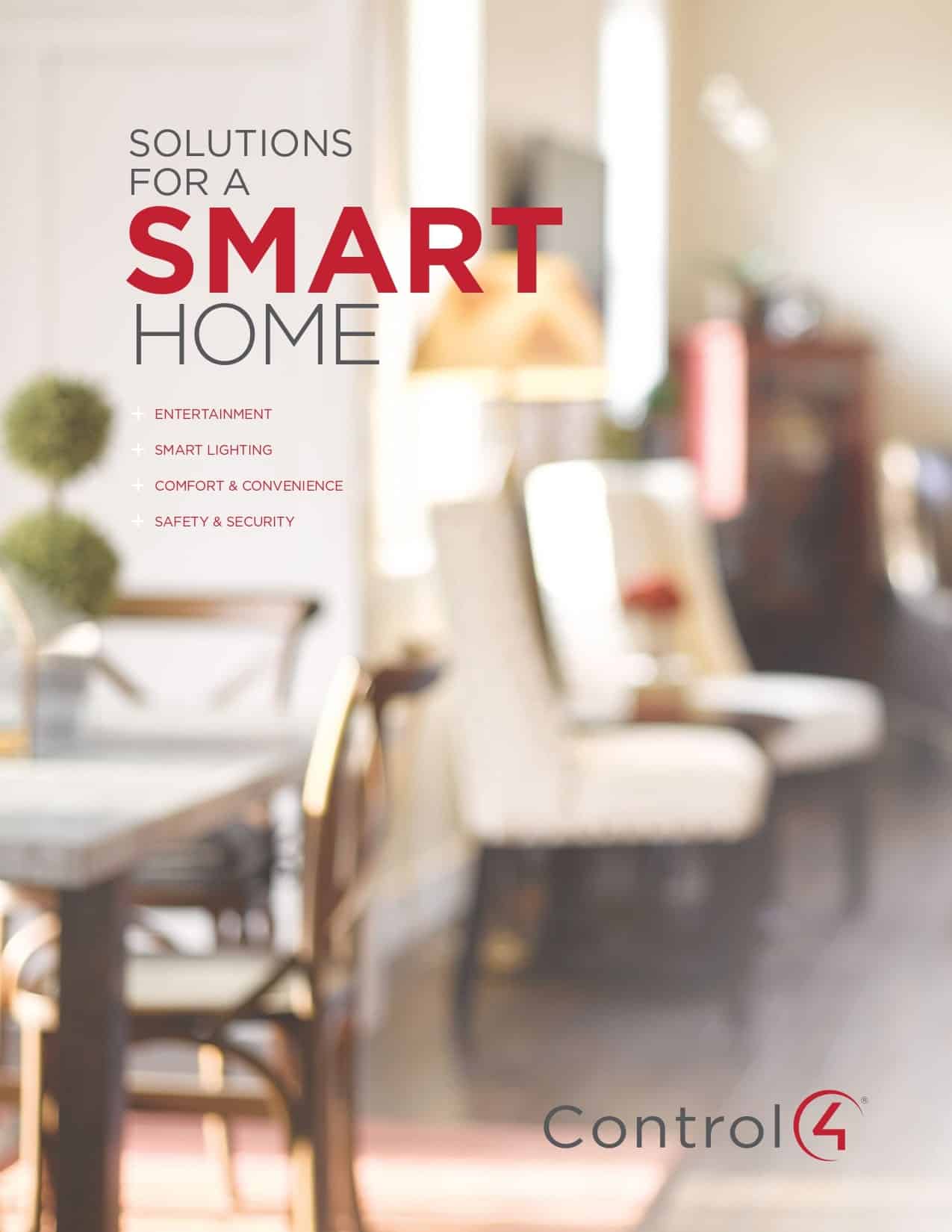There is no better time to upgrade or add a home theater to your Connecticut home, as staying in and enjoying a movie has become more desirable as a result of 2020. To create the ideal movie theater experience, however, you need the right equipment, such as a home theater projector. The home theater projector can make or break the quality of your movie-watching experience; its purchase and installation should not be taken lightly. There are many important considerations to take into account when making this investment in your home. Continue reading to discover what to look for when buying a home theater projector.
#1: Projector Screen Brightness
How much light a projector can create is measured in lumens. An important factor to know about lumens is that they are not created equally. A lumen can be measured subjectively and vary in measurement. For example, one brand may measure their projector at 4,000 lumens and the same projector may be measured by another brand at 3,000 lumens. To minimize confusion, we recommend thinking of a lumen as an approximate measurement so you don’t get caught up in any obscurities.
The measure of lumens to look for in your projection screen depends on a few factors, including the desired level of brightness, distance to the projection screen, room lighting and image quality and color. The more brightness in the room may increase the demand for more lumens. For example, if you have your projection screen fixed in a room with little to no outside lighting, you may need a projection screen with around 2,000 lumens of projection. On the other hand, if ambient lighting is created from outside light sources, you may need to increase how much light is needed to 3,000 lumens.
#2: Motorized vs. Fixed Projection Screen
Does your home theater serve other purposes? For example, when adding a home theater to your media room, you may have other entertainment elements included, such as a pool table, bar area or card table. If this is the case, you may want to consider how to maximize the space with a motorized projection screen. After your movie is over, a motorized screen is easily retracted and out of sight so it’s only visible when in use. Motorized projection screens are whisper-quiet and simply retracted by the push of a button!
Motorized screens are typically more expensive than a fixed, pull-down projection screen. Fixed screens use a spring and roller device that allows you to easily roll down the screen without the use of automation or remote control. If you’re working on a budget, this may be an option for you.
#3: Screens with or Without Tension
As you can imagine, after your fixed or motorized screen is retracted, there may be some ripples you notice on the screen. These ripples occur because of the lack of tension on the projection screen. To combat this issue, you can opt for a tab-tensioned screen that exerts a constant pull on the bottom of the screen so it can never freely wave around and interrupt your movie experience. Unlike a free-hanging projection screen, these types of projection screens use cables and tabs to ensure the screen is pulled down all the way.
A projection screen using tab tension creates a perfectly flat viewing surface, creating a crystal clear picture. On the other hand, there are ways to make free-hanging projection screens more stable. These types of screens are typically backed with fiberglass, which gives them more weight so that they are more likely to lay flat.
#4: Screen Placement
When partnering with a professional, there are a few options when it comes to the placement of your newly acquired motorized or fixed projection screen. Depending on your space, you can either have your screen mounted, recessed or recessed into the ceiling. Recessed projection screens are sleek and seamless to your home while a mounted screen may be an option for spaces that are solely dedicated to a home theater or media room. Another consideration for choosing the placement of your projection screen is ceiling height. If your home has standard or lower ceiling, you may want to opt for a recessed placement so the room does not appear even smaller as a mounted projection screen may take up a few inches of ceiling space.
If your space has low ceilings or you simply do not want to see the projector device on the ceiling, an ultra short throw projector is an option. Unlike mounted ceiling projectors that require a distance of 10-16 feet, an ultra short throw projector uses special wide angle lenses and mirrors to display a large image from a short distance and only needs a few inches or feet to cast a large projection. These projectors work well in tight, confined spaces and can be placed on a coffee table or entertainment center. This may be a viable option if you live in a condo or if your media room is a smaller space. In addition to residential projects, ultra short projectors are used commercially in business conference rooms, classrooms and places of worship.
Projection Screen Installation for Your Connecticut Home Theater
Our process is simple: we listen and learn from you. Based on your lifestyle, goals for a room and desired aesthetic, we go through the design phase and create a detailed, custom plan for your home. Whether you’d like to start off with a projection screen or upgrade to a smart home theater, Lifetronic Systems has the experience and expertise to deliver. Request a free quote today.




